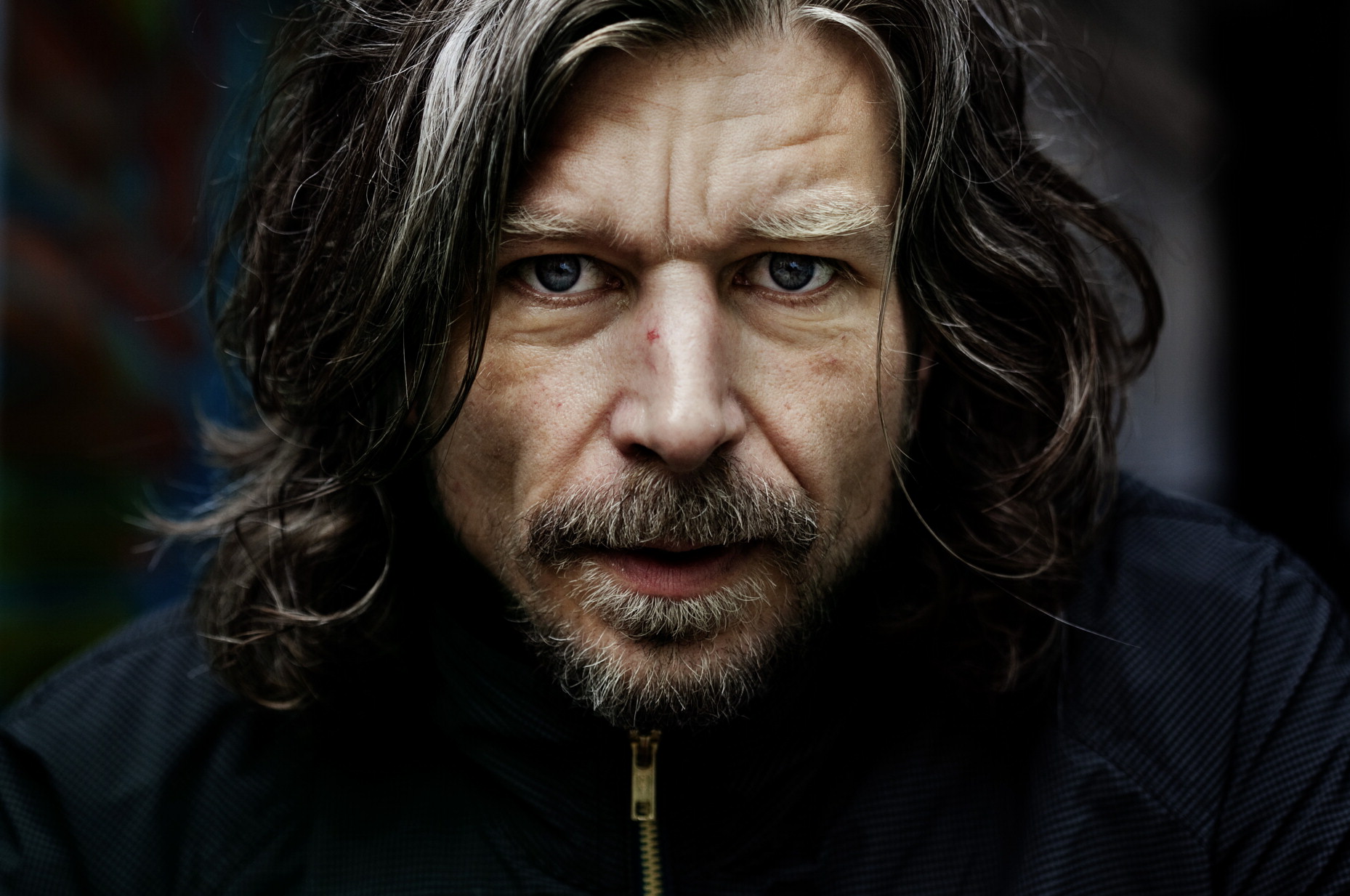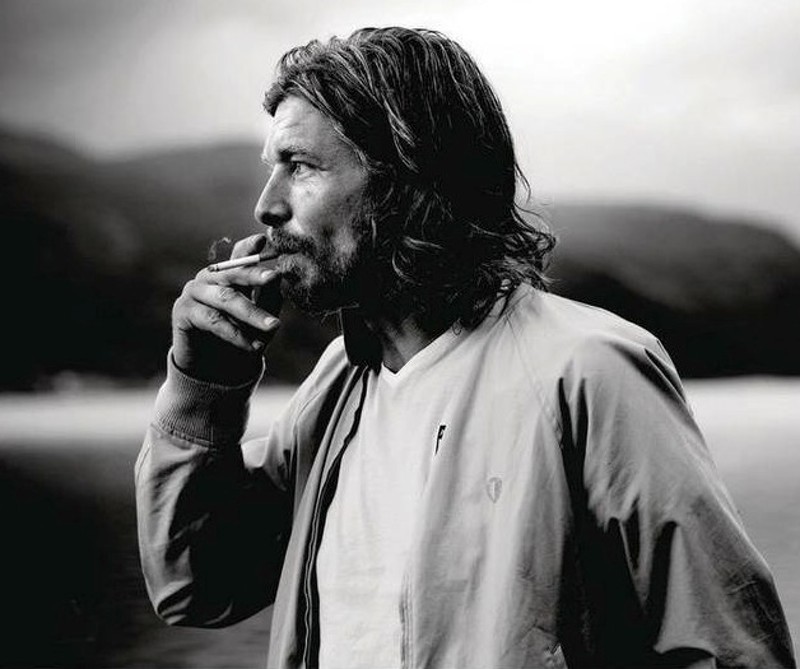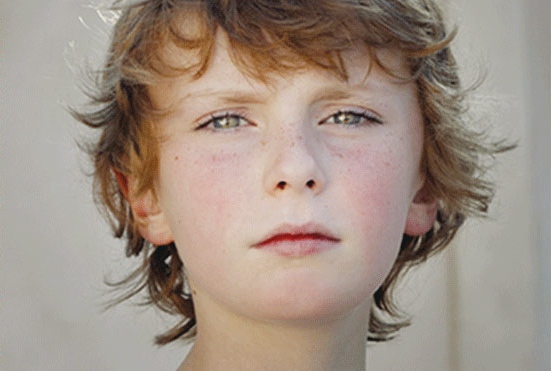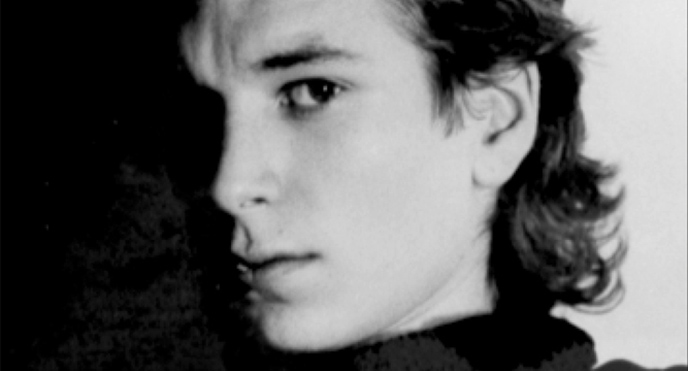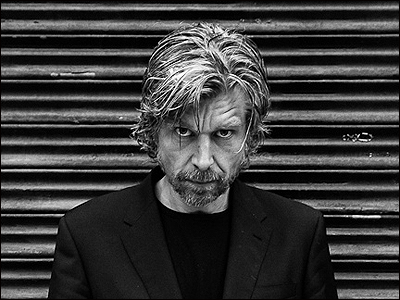My Struggle, vol. 3: Dan, August 4
Bell Lake, Quetico Provincial Park, Canada
Dear everyone,
I've fallen in love. Maybe it's the pale moon fading against the early morning, or the way the waves are licking the rocks at my feet. Maybe it's these days of endless cornflower skies, the wild blueberries ripe on the portage trails, the coffee in my mug. Maybe Jess's letter primed me, prepared me for love. Whatever it is, I'm in love with little Karl Ove, the boy afraid of foxes and plumbing, chasing actual rainbows, aflame with exclamation points.
I write from the shores of Bell Lake on the eastern side of Quetico Provincial Park, not far from the border with Minnesota. Day 7 of my wilderness canoe trip. I measure time, here, by reaching out my arm and seeing how many of my fists the sun is from the horizon—now it's three, and rising. After days of gusty winds, the world's still, lake of glass. Such quiet. The mist has burned off, a lone loon calls from somewhere distant. Occasionally, deer flies, with their hostile triangular wings, buzz around my head until I snatch them and crush them, hear their tiny skeletons crack. A fire of cedar wood smolders in the makeshift hearth behind me. Soon my friends will cook breakfast, we'll pack up, paddle on.
It's been wicked hot. We paddle, and swim, and swim, and swim, leaping from the canoes mid-lake, skinnydipping in the clear water. When I'm not paddling or swimming—in the mornings, in the evenings—I've been consumed by Book 3: Boyhood Island. Consumed, too, strangely, by tenderness. Knausgaard cultivated in me, in the first two books, such ambivalence, an ambivalence I've come to find pleasurable and integral to his project. Yet here, in a boy, I find even his worst traits endearing: his moments of piety, his bragging, his social clumsiness. Poor Karl Ove, putting on his ugliest clothes and moping along the road outside his first girlfriend's house, in hopes she'll see how sad he is and take him back. Sad Karl Ove, so frightened of his father's wrath at wasted food that, when he accidentally pours sour milk in his cereal, he soldiers through and eats it anyway. Sensitive Karl Ove, who, when watching open heart surgery on television, thinks,
How incredibly sad.
Not because the heart was beating and couldn't escape, it wasn't that. The point was that the heart should not be seen, it should be allowed to beat in secret, hidden from our sight, it was obvious, you understood that when you saw it, a little animal without eyes, it should pound and throb within your chest unseen. (176)
I, too, can't bear the exposure of what's inside us, our organs, our bones, our blood. But not because we keep within us shy little creatures, what a lovely idea, but because I'm averse to encountering the infrastructure that proves that I, myself, am a creature, am pumping blood each moment to stay alive, am mortal. I would run out of the room, as a child, when my family watched Rescue 911. Little Karl Ove, on the other hand, is a sensuous fellow, curious about his body—so curious, all too curious....
How delightful his meditation on shitting! I'm well-disposed, at the moment, to appreciate the joys and dangers of relieving oneself in nature, and Karl Ove and his pal Geir take the practice to new heights, shitting off cliffs or while hanging from up in trees. Then there's the description Karl Ove gives of the pleasure he gets from shitting after holding it in for days: "Everything was peace and light throughout my body" (105). And how joyously he tells of using his finger to loosen his hardened shit, ease it on its way "What a method that was!" (106).
Let's revisit beer bottles, shall we? When little Karl Ove squeezes his dick into a Heineken bottle, salvaged from the dump, he's a ghost of his future teenage self who emphatically fails to uncap his beer. Whereas in Book 1, his failure, so well discussed by Cecily and Diana, signals his morose masculinity, here, in Book 3, (1) he gets hard in the Heineken, tightening the situation, swiftly followed by (2) a beetle snapping with its claws onto the head of his penis, giving us (3) excesses of masculinity played not for pathos, but for comic effect.
Be a Man: the first axiom I drew from Book 2. But here, Karl Ove's gender has yet to harden into the ill-fitting mold of the earlier books. Yes, he despairs at wearing a flowered swim cap and chases girls and seeks out porn. Yet he doesn't understand other boys' obsession with cars, he's the only boy who talks about clothes with the girls, and he relishes performing girl roles, pouting, swinging his hips, speaking with a feminine affectation. He picks white wood anemones for his father, who tells him, "little girls pick flowers," and throws them in the sink (388). To his peers he becomes the "jessie," an effeminate boy, an epithet that shames him and that, along with his father's brutality, we can see shaping the wounded man he becomes.Be Good: the second axiom. Karl Ove's being good, here, has nothing to do with being a man, just the opposite. We finally get the backstory behind his boyhood Christianity, for which his father mocks him early in Book 1. And it's straight out of Nietzsche's Genealogy of Morals. From all the books he's read—and he's a voracious reader—Karl Ove gathers that "you had to have courage, that courage was perhaps the supreme attribute" (282). Yet this is a problem, because Karl Ove is "weak, slow, cowardly; not strong, quick, courageous" (282). He's bullied by the other kids. He cries for no reason. "It felt unjust," he writes, "that I, of all people, who knew so much about heroic bravery, should be saddled with such frailties" (282-283). So he forgoes swearing, asks his friends not to steal, chooses Christianity. His sense of virtue in meekness gives Karl Ove moral leverage, at least in his own mind. If he can't be courageous, he can at least be pious. And even this I love, his meager attempt at pride, his "fairly solitary undertaking" in religion" (283).
Fall in Love: the third axiom. Saturate life with meaning. If I've fallen in love with Karl Ove, Karl Ove, a sorry Christian, has fallen in love with the world. "That was everything, that was the world," he writes, after enumerating the sites he haunted as a small child. "But what a world!" (15). What a world where he can be captivated simply by a workman climbing a telephone pole, or by the mysteries of manholes.
The world this book is bound by is Tromøya, the small island to which the Knausgaards move on the first page and away from which they drive on the last. Yet within Tromøya, we watch Karl Ove's world grow gradually larger. When he starts school, "it was as if a curtain went up, and what we had assumed was the whole stage turned out to be only the proscenium" (97). This experience happens again and again, almost imperceptibly, it is the structure of this otherwise formless novel. I've come to love Knausgaardian anticlimax, the satisfying way so many of Karl Ove's hopes and fears come to nothing, the countless narrative threads leading to disappointment, energy that merely dissipates: the faults his father fails to notice, Karl Ove's highly anticipated romance with Kajsa that ends almost immediately, thanks to the worst make out session of all time. Yet he grows, and we follow beside him—Knausgaard seldom intervenes, in this book, to comment from the present. When he does, it's to identify the key feature of his boyhood, a tacit pastlessness, the sense that "Everything was happening for the first time," forgetting that feelings are as old as fire, a feature Knausgaard argues is not universal but particular to the new form of life created by Norway in the 1970s, the estate, neighborhoods built to support the new Norwegian mobility that came with postwar wealth (303). "An estate has no past, nor any branches into the skies of the future" (15). And this, of course, is the story of American suburbs, like the one north of Minneapolis where I grew up in the 1980s and 1990s, feeling that everything was happening for the first time.
*
To tell you the world's most boring story, in high school I became another white suburban teenage rebel who rebelled through Ayn Rand. I'm back from the wilderness, now, and I've been reading and re-reading Omari's letter, which has given me the occasion to remember my youthful dalliance with Randian Objectivism—because Omari's given me the occasion to see how easy it was, out there in the woods, away from Trump, away from police violence and Black Lives Matter, for me to fall in love with My Struggle. Tromøya could be my town, where, when feeling everything for the first time, it's easy to forget not only that feelings are as old as fire, but that not everyone has the luxury, the privilege, of pastlessness. It's a fantasy—pastlessness—that's far from innocent, or it's the kind of innocence, in the words of James Baldwin, that constitutes the crime. It's a fantasy that propelled me—and so many others—into my romance with Rand's capitalist hellscape. Forget the past and it's easy to blame others for their poverty. It's easy to snicker at the welfare state. And so, Omari, remembering his black childhood, thinking of someday having black kids, can't meet Knausgaard here, in the fantasy of no past, the fantasy of a safe future. I, on the other hand, still susceptible to pastless nostalgia in all its whiteness, fell in love.
*
My friend Luke insists that my writing, in its enthusiasm, tends toward an aesthetics of fascism—that I slip into a love of language that, in its swooning, elides criticism and fosters a kind of mindless submission to art. Ari's letter reminded me of this, made evident how my letter, this letter, is a love letter to Knausgaard's manic voice, a voice that, in Ari's reading, obscures the socio-political violence that undergirds Norway's social welfare state, except in that brief moment when Karl Ove looks at the Holocaust image of a skeletal woman. A glimpse of fascism, a wink to show us what ideology hides silently in Knausgaard's voice, and mine. That acknowledgment, that wink, that Holocaust image is enough for Ari to sense a self-awareness in Knausgaard, a sense that he's putting an ideology on display for canny readers, and hence that My Struggle has ethical force. But, for myself anyway, this seems a slippery line—between fanaticism and critique, between mania and ethics—and this time, it would seem, I've found myself seduced by the sheer hypnotic pull of language.
*
These are the words I wrote in the wilderness to close out this letter...
I, too, am bound by a small island. We are resting, taking a layover day, but, when not writing this letter, I'm feeling restless, wandering the island, pushing through boughs of cedar and fir into the interior. My feet sink into the soft, pale green sphagnum moss, damp from last night's rain. I pause before piles of little flakes, violet and white, middens, the leftovers of a squirrel's meal of pinecones. Spiderwebs catch in my hair. I look for blueberries, the last remnants of raspberries. I'm captivated, for a time, in love.
Years ago, I began leading canoe trips to watch the stage become merely the proscenium. I pushed farther and farther north, onto larger lakes, longer rivers. And then I quit to focus on grad school, new stages. Coming back, it's no longer about discovery, it's about a queer kind of memory, the word on the tip of my tongue, easing into a past life that never quite was.
Tomorrow I come off trail. I'll clean my gear, take a shower, eat a burger. I'll check the internet, listen to the radio. I'll drive to Minneapolis. I'll see a woman I've been missing. I'll pack up my place in Iowa and move to Ohio. I'll read Book 4. But it all feels far away from here.
Distantly,
Dan
ALSO IN THIS SERIES:
The Slow Burn, v.2: An Introduction
My Struggle, vol. 1: Cecily, June 6
My Struggle, vol. 1: Diana, June 9
My Struggle, vol. 1: Omari, June 14
My Struggle, vol. 1: Dan, June 17
My Struggle, vol. 2: Omari, June 24
My Struggle, vol. 2: Cecily, July 1
My Struggle, vol. 2: Sarah Chihaya, July 5
My Struggle, vol. 2: Dan, July 12
My Struggle, vol. 2: Diana, July 16
My Struggle, vol. 2: Jess Arndt, July 18
My Struggle, vol. 3: Omari, July 25
My Struggle, vol. 3: Ari M. Brostoff, August 1
My Struggle, vol. 3: Dan, August 4
My Struggle, vol. 3: Jacob Brogan, August 8
My Struggle, vol. 3: Diana, August 12
My Struggle, vol. 4: Katherine Hill, August 25
My Struggle, vol. 4: Omari, September 1
My Struggle, vol. 4: Dan, September 2
My Struggle, vol. 4: Diana, September 15
My Struggle, vol. 5: Omari, September 27
My Struggle, vol. 5: Diana, October 3
My Struggle, vol. 5: Dan, October 13

